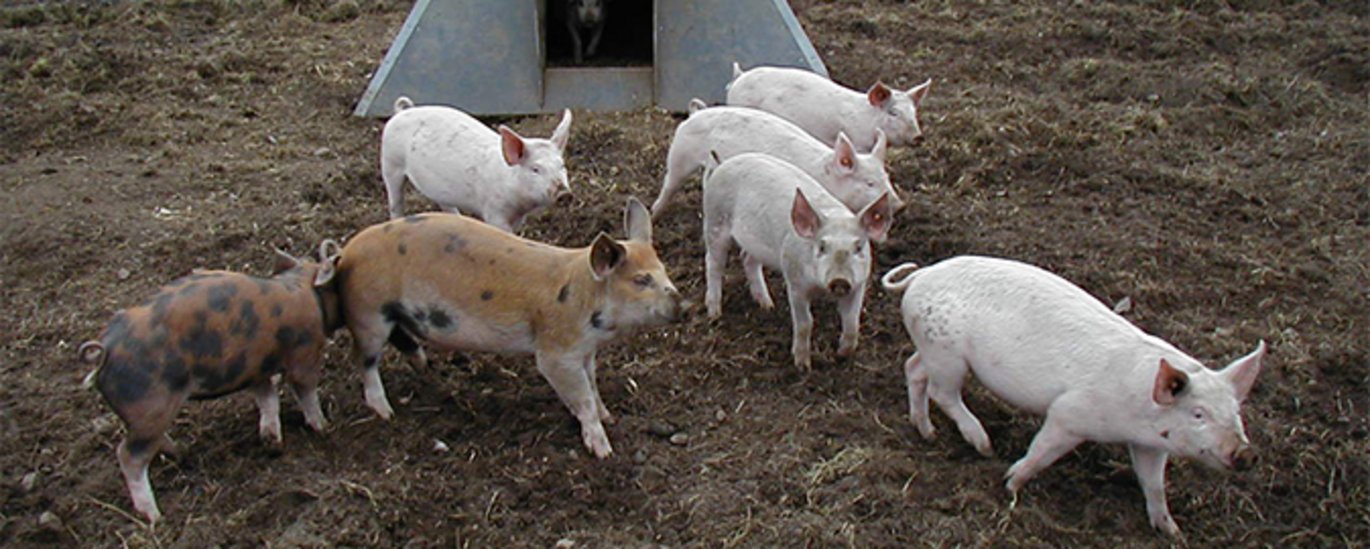Antimicrobial-free organic production seems within reach
Production without the use of antimicrobials can be within reach for many organic farms with a targeted health-promoting effort. A recent report from Aarhus University examines the possibilities of establishing organic production concepts for dairy and pig farming without using antimicrobials. The report also mentions the importance of rethinking our way of using antimicrobial medicine.

Farmers use antimicrobial treatments in conventional and organic pork and dairy production when the animals are infected with a bacterial disease.
Studies show that the number of antimicrobial treatments is significantly lower in organic pig herds than in conventional herds. Some organic dairy cattle herds are productive even with a minimum use of antimicrobials. In 2015, the use of veterinary antimicrobials in Denmark was a little more than 108 tons. According to figures from DANMAP (Danish Integrated Antimicrobial Resistance Monitoring and Research Programme) approx. 75 percent of these were used in pig production. According to surveys from the Ministry of Environment and Food of Denmark (2014), conventional pigs received between 2 (slaughter pigs) and 14 (weaner pigs) times as much antimicrobial medicine as organic pigs.
Huge potential for production without the use of antimicrobials
A recent review from the Department of Animal Science, Aarhus University, indicates that the antimicrobial consumption in several Danish organic herds is relatively modest and provides an excellent starting point when aiming to achieve a production without using antimicrobials.
- It is important to emphasize that a low antimicrobial consumption should be based on a low disease level; however, promotion of animal health and disease prevention require major efforts. Many producers still need to change their production conditions, says Mette Vaarst, Senior Researcher at Department of Animal Science at Aarhus University. She and her colleague, Professor Jan Tind Sørensen, are the authors of the report ”Muligheder for antibiotikafri produktion af økologisk mælk og svinekød i Danmark” (Possibilities of organic pork and dairy production in Denmark without usingantimicrobials, in Danish). The report describes strategies to change these production conditions.
The report is published by DCA – Danish Centre for Food and Agriculture, and was commissioned by the Danish Agricultural Agency as part of Aarhus University’s agreement on research-based policy advice.
Rethinking antimicrobial consumption
The researchers emphasise that organic farmers should realise that even though it may be possible to establish a herd with zero use of antimicrobials, they will never succeed in establishing a 100 percent disease-free herd, no matter how hard they try.
- We must realise that there is a need to rethink the use of antimicrobials in many cases where antimicrobial medicine has been applied as a standard treatment and considered as “the safe treatment under the given circumstances”. Actually, it is often possible to improve “the given circumstances”, and it is both possible and highly relevant to nurse sick animals and provide other types of treatment instead of simply administering antimicrobials. This just requires more time as well as more knowledge and experience, says Mette Vaarst.
More robust animals
In order to avoid using antimicrobials, one of the focus areas is to extend the suckling period for piglets. This can help reduce problems with weaning diarrhoea. Breeding material is another focus area in order to ensure that sows have fewer and more robust piglets. In relation to dairy cattle, animal robustness and immunity may be strengthened by ensuring plenty of space, fresh air and hygiene as well as focusing on breeding material, i.e. cattle with strong legs, excellent calving performance and other “robustness” goals.
If the farmer wants to avoid antimicrobial treatments in a herd, it is important to have a plan for handling sick animals. He can either apply alternative treatments, such as pain-relief, or, in more severe cases, euthanise the animal or move it to another farm.
Different models for production without using antimicrobials
The report describes two different models for organic production without the use of antimicrobials. One model comprises only the individual animal. The report draws heavily on experience from existing pig farms where the animals are “reared without the use of antimicrobials”, which means that the animal will never receive antimicrobial treatment. However, it may have been exposed indirectly to antimicrobial treatment via the sow’s milk. Many Danish organic herds can have this type of production, comprising the individual animal, with relatively minor effort compared to their existing practice.
The other model comprises the entire herd.
- If the model comprises a consistent phasing out of antimicrobials from the entire herd, only a few farms would be able to adopt this model right away. We expect that most herds will need significant preparation periods, says Mette Vaarst.
A number of experts contributed to the report and they point out the relevance of examining a “hybrid model” combining the two types of production without the use of antimicrobials.
Good husbandry is paramount
An antimicrobial-free production places extra demands with regard to animal husbandry, farmer alertness and timely action. This means that more time is needed for management on farms seeking to reduce the use of antimicrobials.
Read more about the barriers to production without the use of antimicrobials and strategies for disease management in the report from DCA “ ”Muligheder for antibiotikafri produktion af økologisk mælk og svinekød i Danmark” (Possibilities of organic pork and dairy production in Denmark without antimicrobial use)
For more information please contact:
Senior Researcher Mette Vaarst, Department of Animal Science, email: mette.vaarst@anis.au.dk, telephone: +45 8715 7924, mobile: +45 2290 1344
